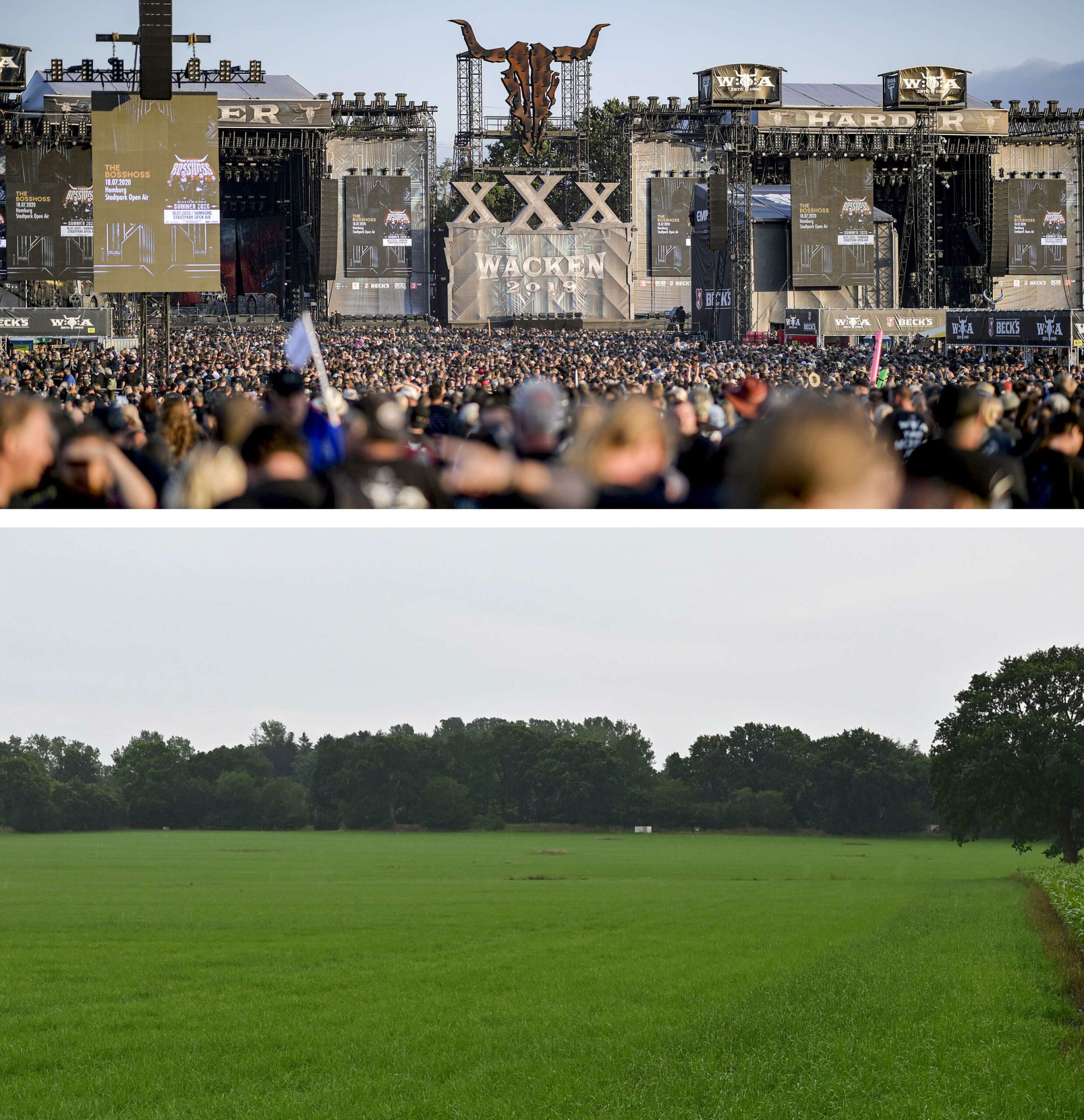German Event Sector Laments Lack Of Perspective

Carsten Rehder/picture alliance via Getty Images – Wacken Open Air during normal times vs. Wacken in 2020 and 2021.
Due to the restrictions mandated by the German government in response to coronavirus, the world-famous heavy metal festival was forced to cancel for two years in a row. This does not only annoy the metal fans but also hits the small town of Wacken in Schleswig-Holstein hard.
Germany’s events industry had remained hopeful that the country’s decision makers would offer a reopening strategy by the end of this year. However, none has been offered, and the latest statement from the country’s biggest event association says the sector has been left without any perspective.
The drop in confidence is represented by Germany’s so-called business climate index, an annual survey amongst managers from different economic sectors, which dropped from minus 2.2 in October to minus 26 in November. The IFO Institute, which conducts the survey, stated in its November report, that the any “hope for improvement” still present in October had “vanished”.
Germany’s Forum Veranstaltungswirtschaft, a federation of the country’s six major promoters and events associations, held a press conference, Dec. 16, once again attempting to make decision makers aware of the precarious situation Germany’s sixth-largest economic sector is finding itself in.
The Forum stated that the events sector has been in a de-facto lockdown since March 2021, even if small events have been allowed here and there. Since they all took place under capacity restrictions and with additional staff to oversee the mandated safety requirements, none of them have been economically viable.
Germany’s financial aid programs are the only reason the events sectors isn’t in even worse shape. However, as Prof. Jens Michow, president of promoters association BDKV stated, these would have to be tailored more specifically to the events sector and extended until the end of 2022 to ensure the sector’s survival. He pointed towards the list of concrete political demands, which the Forum Veranstaltungswirtschaft already handed in last month.
Linda Residovic, CEO of the association representing the media and event technology sector, pointed out the 50% reduction in national insurance contributions from Jan. 1, which the government has announced, which would’t be sufficient for many companies.
The most recent figures show that the German events sector – promoters, exhibitions, venues, agencies, suppliers, technicians, crew etc. – used to generate some €81 billion ($91 billion) per year, employing 1.13 million people. 243,000 of those are self employed and independent. Many of them have left the sector in search of other jobs over these past two years, which makes any recovery particularly difficult, Residovic said.
Marcus Pohl of the ISDV interest group, which represents the self employed working in events, said most of the basic financial aid programs launched by the German government didn’t include the self employed.
The chairman of the association representing the MICE trade, Henning Könicke, said the entire sector involved in planning and supplying trade fares and exhibitions lacked any kind of perspective that would enable it to plan a stable spring period in 2022.
Axel Ballreich is the chairman of LIVEKOMM, which mainly represents live clubs, which haven’t been allowed to operate properly throughout all four waves of coronavirus. The continuous cancelling and rescheduling of shows has led to a loss of confidence in visitors, Ballreich explained.
Timo Feuerbach, CEO of the European association of event venues (EVVC), reminded everyone that the German government launched a ten-point plan for salvaging the country’s event sector more than a year ago. One of the co-signees is Robert Habeck, who’s the minister for economy in the recently elected German government, placing him in the ideal position to now execute that plan.
FREE
 Daily Pulse
Subscribe
Daily Pulse
Subscribe
 Daily Pulse
Subscribe
Daily Pulse
Subscribe

